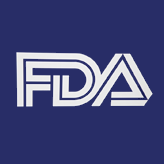AVEO Seeks FDA Approval of Tivozanib for Renal Cell Carcinoma
AVEO Pharmaceuticals Inc has announced that it has submitted a new drug application for tivozanib to the US Food and Drug Administration for the treatment of metastatic renal cell carcinoma.

AVEO Pharmaceuticals Inc has announced that it has submitted a new drug application (NDA) for tivozanib to the US Food and Drug Administration (FDA) for the treatment of metastatic renal cell carcinoma (RCC).
The NDA submission is based on results of the randomized phase III TIVO-1 trial, which evaluated tivozanib compared to sorafenib. Data released at the 2012 annual meeting of the American Society of Clinical Oncology showed an increase in progression-free survival that favored tivozanib. In the tivozanib arm, the median progression-free survival was 11.9 months, compared to 9.1 months in the sorafenib arm (HR = 0.797, 95% CI 0.639–0.993; P = .042). In treatment-naive patients (70% of participants), the median progression-free survival was 12.7 months for patients receiving tivozanib vs 9.1 months for those receiving sorafenib (HR = 0.756, 95% CI 0.580–0.985; P = .037).
Despite the positive results in progression-free survival, in August AVEO announced that in one of the clinical trials, overall survival was lower in the tivozanib arm. At 12 months, overall survival for patients receiving tivozanib was 77%, while patients treated with sorafenib had an overall survival of 81%.
The strength of the trial data is in the drug's favorable tolerability profile.
“Minimizing toxicities associated with anti-VEGF therapy is a vital consideration in RCC. Adverse events have been shown to contribute to dose reductions, interruptions and discontinuations of anti-VEGF therapy,” said Timothy Eisen, PhD, FRCP, study investigator, Cambridge University Health Partners, in a press release. “The data from TIVO-1 show that treatment with tivozanib led to fewer side effects and lower rates of dose modifications than with sorafenib. This suggests that it is easier to maintain full dose therapy with tivozanib.”
Safety data from TIVO-1 were recently presented at the European Society for Medical Oncology 2012 Congress (abstract #795PD). The trial randomized patients 1:1 to either tivozanib 1.5 mg once daily for 3 weeks followed by 1 week of rest, or sorafenib 400 mg twice daily continuously in a 4-week cycle.
The results found that fewer patients suffered grade 3 adverse events in the tivozanib arm (36.3%) compared to the sorafenib arm (51%), and they required fewer overall dose reductions (13.9% vs 44.4%). Hypertension was the most frequent adverse event associated with tivozanib (42.1% vs 30.7% in patients on sorafenib), though this was easily managed with standard antihypertensives. Patients on tivozanib also experienced more dysphonia (18.1% vs 4.3%), but less hand-foot syndrome (13.1% vs 53.3%), diarrhea (18.1% vs 27.6%), and alopecia (2.3% vs 20.6%) than patients receiving sorafenib.
The study authors concluded that the data demonstrate that tivozanib is well-tolerated in patients with metastatic renal cell carcinoma.